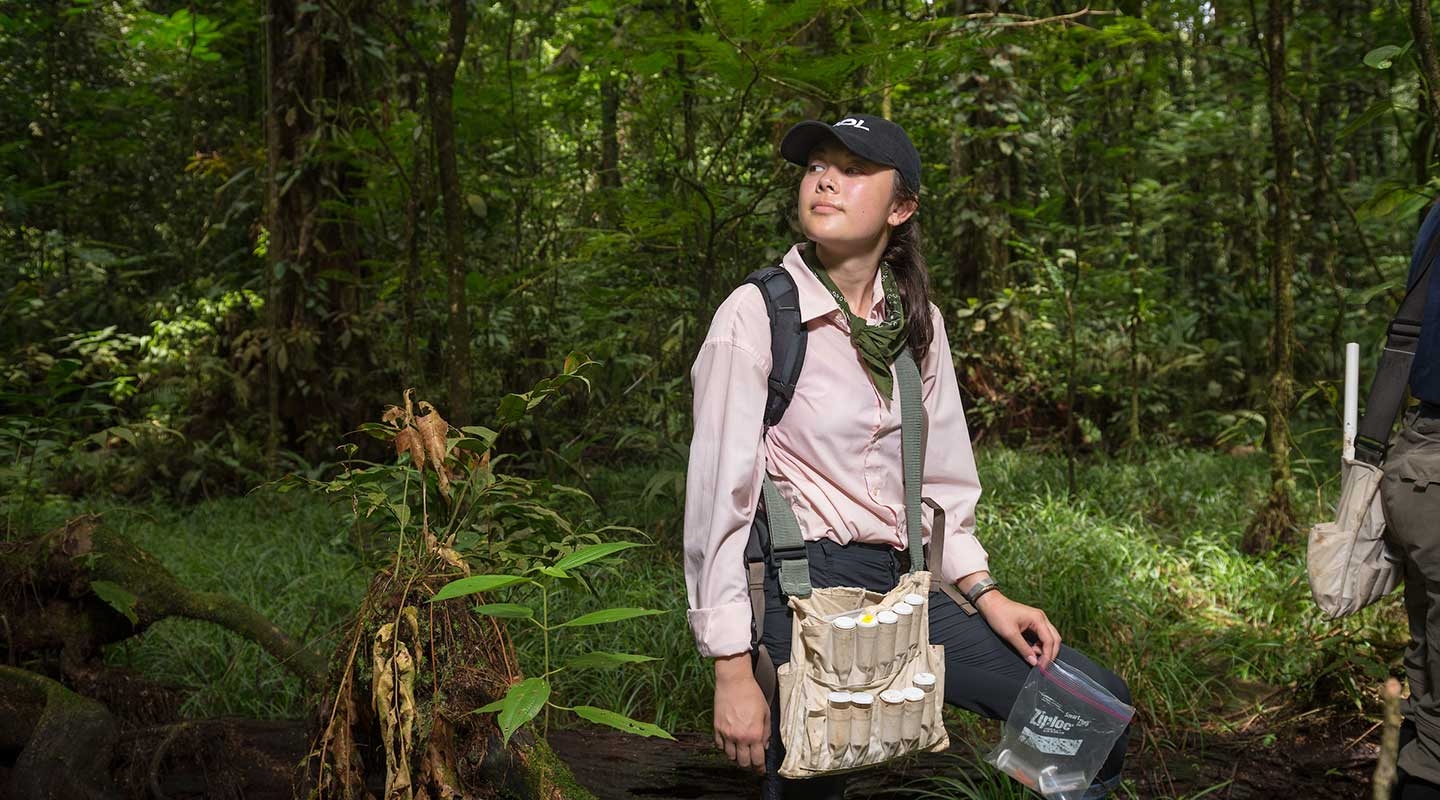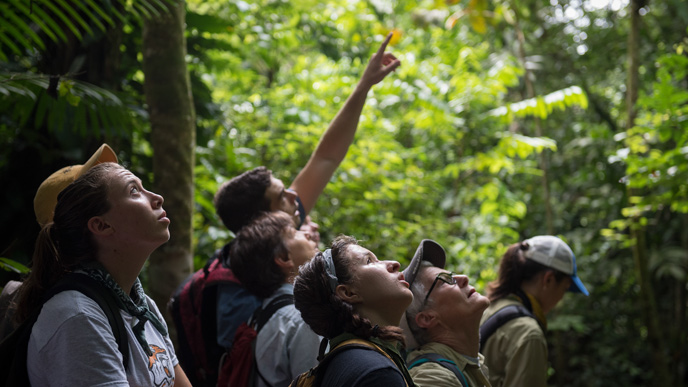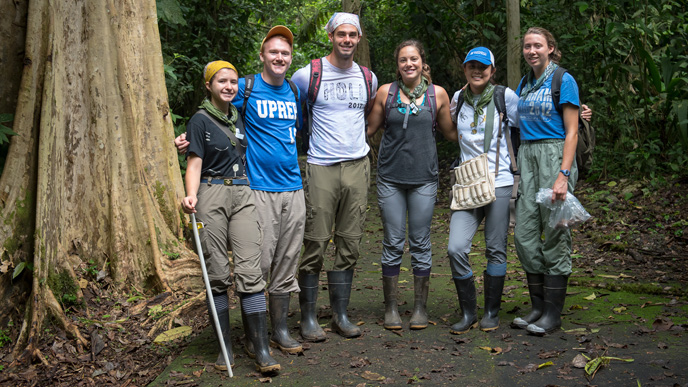Biology major Hannah Hayes was set on performing undergraduate research while at Oxy. Her determination led her across the Pacific Ocean to La Selva Biological Station in Costa Rica.
Each year, several Occidental students get the unique opportunity to visit La Selva Biological Station and conduct research in the Costa Rican tropical forest. Read about how Hannah discovered this research abroad opportunity and came to understand her professors' commitment to their students.
Finding a Path to Costa Rica
I originally was planning to study neurobiology and [that requires] a biology major with a neuroscience minor. I took an intro bio course which was marine biology because I just really like the ocean in general. Through that class I realized that you can be a scientist and work outside and still ask important questions. So I started working in the Vantuna Research Group because I wanted to get involved with research. I met a student who worked there who had come to Costa Rica and he was telling me about how you get to go for two to five weeks and have your own research project and I just really wanted to do that. He told me that Professors Elizabeth Braker, Gretchen North and Shana Goffredi take students there. I met Dr. Braker in her ecology class and I immediately started doing research with her and expressed interest in coming here. She works with grasshoppers so I jumped onto a grasshopper project.
Researching the Wide World of Grasshoppers
I am creating a few different types of “Grasshoppers of La Selva" field guides. One will be a laminated print-out with a bunch of different pictures and the names of each species and what family they're in. Another will have a little more information, including some natural history, where you can find them and important distinguishing field marks. For that I've been catching a lot of grasshoppers and taking really good photos of them and releasing them. Then I do a lot of research on the species and their distribution. There's so little information on a lot of these grasshoppers.
A lot of them are just really not well known because they're really rare, or they're arboreal so they only hang out in the tops of the trees. It's amazing to see that Dr. Braker knows so much when I can't find anything on the internet.
Monkey Business
We were all on a big hike with Dr. Braker in the front leading students and Dr. Goffredi making sure everyone was getting along in the back. We were a pretty big group, so we were a long stretch of people and suddenly we heard screaming in the back. We looked back and couldn't see anybody but we had just passed a river. We thought somebody fell into the river! It sounded like a woman was screaming so Dr. Goffredi ran back to check. By the time this information had reached Dr. Braker in the front she had heard that it was Dr. Goffredi who was screaming and she sprinted down the hilly, wild trail. It turned out the screaming was coming from a spider monkey above us. It was definitely scary but it really showed how close our professors were and how they really cared about us a lot. It was also surprising that a monkey can make a noise that sounds like a screaming woman!
A Note to Future Student Researchers
I would absolutely recommend this to anyone who is willing to sweat and experience the amazing wonders of the tropics, but you do have to understand that you do a lot of work. You're outside a lot so you're sweating a lot and you have to drink a lot of water and eat enough…it has to be for someone who's willing to really work and really be interested in your research.
Interested in conducting research? Explore the possibilities in the Undergraduate Research Center or plan your study abroad experience with the International Programs office.



